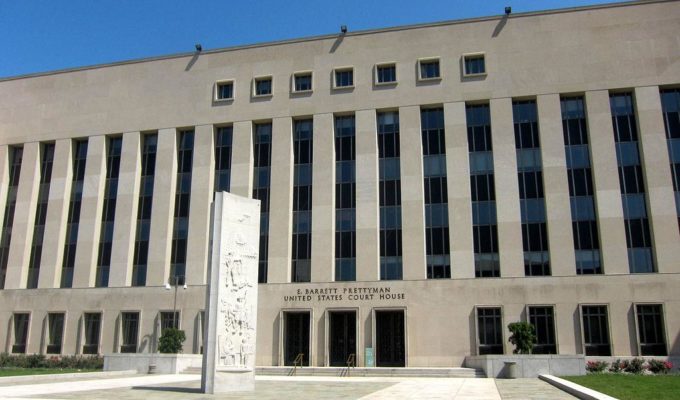
A New Right of Access? ACLU and MFIA Clear First Hurdle in FISC Redaction Challenge
By Hilary Hurd – Edited by Michael McCambridge
In Re: Opinions & Orders of This Court Addressing Bulk Collection of Data Under the Foreign Intelligence Surveillance Act, hosted by aclu.org.
In early November, the Foreign Intelligence Surveillance Court (“FISC”) allowed the American Civil Liberties Union (“ACLU”) and Yale Law School’s Media Freedom and Information Access Clinic (“MFIA”) to continue their challenge to access confidential court records. The plaintiffs asserted a First Amendment “right of access” to FISC proceedings, but their claim was originally dismissed for lack of standing. Established in 1978 to oversee special government applications for covert investigative actions, the FISC met en banc for the first time in its history to resolve an intra-court split on the issue. The 6-5 decision overturns a previous ruling by Presiding Judge Collyer in January 2017 that denied claimants’ standing.
The infamous Snowden leaks in 2013 revealed a secret U.S. court order requiring major telecom companies to hand over millions of phone records to the NSA. When then Director of National Intelligence, James Clapper, subsequently declassified details about the data collection program and the FISC’s legal justification for it under Section 215 of the Patriot Act, claimants filed suit seeking access to unclassified sections of the FISC opinions.
Writing for the majority, Justice Boarsberg argued that the movants’ “injury-in-fact” provided them sufficient standing to seek the classified information, regardless of the claim’s potential success on the merits. Relying on the 1980 Supreme Court decision Richmond Newspapers. Inc. v. Virginia, 448 U.S. 555 (1980), which first recognized a constitutional right of access to criminal trials, the majority argued that the movants asserted a sufficient legally-protected interest under the First Amendment. Under the colorability standard, the Court can only dismiss a claim for want of standing if the asserted legal right is “so preposterous as to be legally frivolous.” In light of subsequent government declassification of documents pertaining to the NSA data collection program, the majority found the novel “right to access” claim sufficiently ingenuous to find standing. Justice Boarsberg opens his opinion recalling that “Justice must satisfy the appearance of justice.”
Having dismissed the ACLU’s motion in January, Presiding Judge Collyer authored the dissent. She argued that “standing must be gauged by the specific, constitutional claims that a party presents” and the “First Amendment provides no general right of access to government proceedings.” Because the First Amendment right of public access only protects an interest in judicial proceedings “involving places and processes that have been historically public,” the right, “does not apply to the FISC.” Emphasising the distinction between the “common law right of access” and the right of access under the First Amendment, Collyer’s opinion underscored the separation of power principle and how expansions of standing facilitate judicial encroachment. She cited the 2013 Supreme Court case of Clapper v. Amnesty International USA, 568 U.S. 398 (2013), writing, “The Supreme Court has instructed the lower courts to apply a more rigorous analysis of standing when a party seeks to challenge actions by the Executive or Legislative Branches on constitutional grounds.”
While the case is still in its early stages, ACLU attorney Max Kaufman nonetheless considers the ruling to be “a win for transparency against the government’s efforts to keep its mass surveillance regime hidden from public scrutiny.” David Schulz, co-director of the Yale MFIA Clinic also celebrated the ruling, which “ensures that… the Yale Clinic and its allies can continue to combat this trend that shrouds in secrecy government actions that undermine our civil liberties.”
Hilary Hurd is a 1L student at Harvard Law School. She was a 2013 Marshall Scholar and previously global advocacy manager at Transparency International.